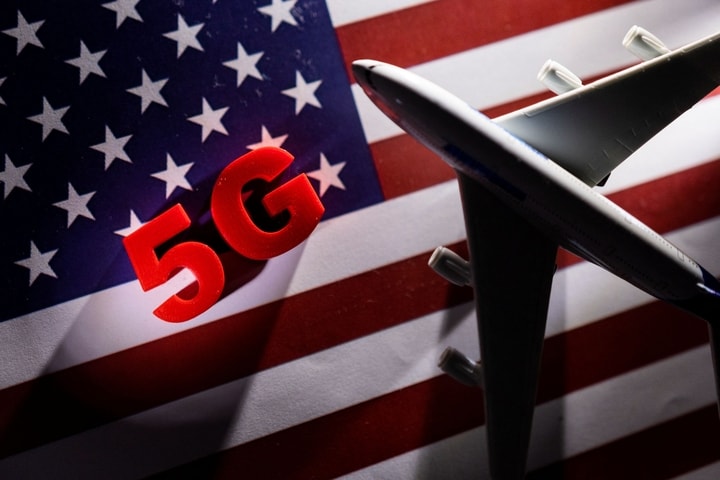Why airlines and telecoms are fighting over the 5G rollout | Here is the truth

The rollout of 5G at airports across the United States has become one of the biggest technology issues facing this administration Biden Administration. The interference caused by this wireless connectivity could cause to the equipment of some aircraft has resulted in flight cancellations being declared.
An incompatibility issue that is partially present resulted from the selection for a separate frequency. The center of the American storm is in the eye of hurricanes is the Federal Aviation Administration (FAA) is the chief of the civil aeronautical operations within this North American country and who delayed the installation of 5G towers in certain airports.
The agency has taken this action in response to the requests of airlines who are concerned about how their operations could be affected and, in the end, affect the security of their passengers.
Also Read: 10 Apps to manage your business from your mobile
Companies That have decided to call off flights to due 5G rollout in the US
The band separation might not be sufficient to ensure safety for certain aircraft models according to some airlines. For instance, Japan Airlines has issued an announcement stating that Boeing has informed it they are concerned that five-G signals from the United States can interfere with the radio altimeters on Boeing’s Boeing 777, one of the ones that airlines prefer in long-distance travel.
“Airbus and Boeing [the world’s largest aircraft manufacturers] have been working with other US aviation industry stakeholders to understand potential 5G interference with radio altimeters,” according to a statement issued by Airbus this week. December. The other affected aircraft models aren’t known currently.
Verizon and AT&T The two largest companies within the United States have decided to hold off powering up certain 5G towers close to airports, thereby creating the “radio buffer zone around 50 airports,”. As they wait for FAA and the plane manufacturers to conduct more tests regarding the issue.
“The first thing that regulators have to do is determine the problem, that this incidence really exists.” In the next step, they must find alternatives, like delaying the installation for a time until the planes or technologies of antennas on the mainland are adjusted.
The other side of this coin is represented by operators, who have a claim to the FAA to not have carried the required checks over the past two years, as well as stating that there is no evidence of this happening elsewhere. A very complex mix whose basis is the interfering between the 5G and the radio altimeters on aircraft that are an important device when the weather is not in good shape.
What is the radio altimeter?
A radio-altimeter is a device used on helicopters, as well as the majority of the commercial planes in operation currently. It is an instrument that emits the surface with a beam of radiation. the surface. It then, taking into consideration the amount of time it takes for the forward to bounce off, calculates the height in relation to the floor.
The device is crucial in approach as well as landing procedures. The radio altimeter reading will become the sole reference vertical for pilots in the event that have low visibility or no visibility.
Certain essential systems also are based on it, for example, the ground proximity warning system (GPWS) which alerts pilots that they’re flying too low as well as the traffic warning and collision avoidance systems (TCAS ) or automated landing.
Failure due to interference or some other reason– of the radio’s altimeters could cause fatal injury or put passengers and crew in peril. The pilots could be flying at an incorrect or uncertain altitude within minutes after the moment of landing on the plane. It can be a problem in the situation of an emergency that requires taking off in low visibility.
5G interference
“The problem is basically what has happened on other occasions with the distribution of the frequency spectrum ” explained Jose Antonio Moran, director of the Telecommunication Technology and Services Engineering degree at the Open University of Catalonia. Moran is also an expert on electromagnetic pollution, and he says it is “when the frequencies are close, there is interference and causes problems. “
The main protagonist in the conflict between operators, airlines, as well as public authorities is band C of 5G. ” It’s very similar to the frequency utilized by radio altimeters on certain commercial models of aircraft,” states Moran. In particular, “Band C in the United States uses the band between 3.7 and 3.98 GHz while radio altimeters operate from 4.2 as well as 4.4 GHz,” continues Moran.
More in Technology






